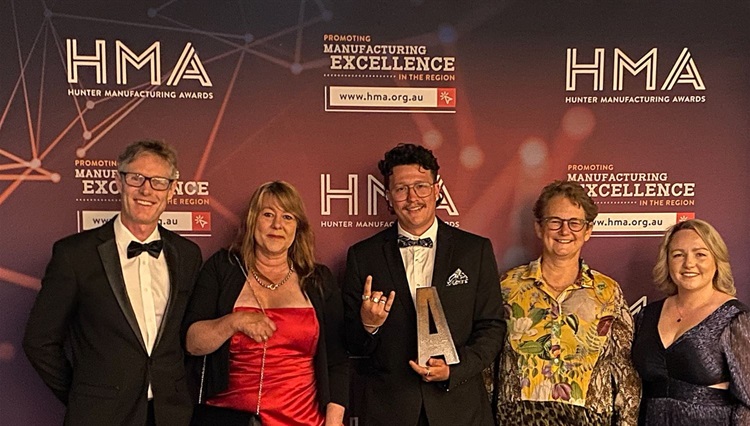Loop Organics: Journey to Net Zero
Local sustainability champion Loop Organics is an example of local action towards global outcomes.
With a depth of experience, from farming and agronomy to environmental science and chemistry, Loops Organics works with industry partners to deliver a positive impact on the planet now and into the future.
Who are Loop Organics?
Loop Organics are a local compost facility at Ravensworth who process materials such as food and garden waste, as well as biosolids into premium quality soil amendment products for farming and agriculture, mine regeneration and landscaping. Historically, these organic waste materials have been landfilled in Australia.
Loop collaborate with councils, water authorities, industry and recycling associations to deliver positive benefits to communities and the environment.
One example is Loop’s collaboration with Altogether Group, where waste from Altogether’ recycled water communities is delivered to Loops’ Ravensworth Compost Facility, then custom blended into organic compost. The Loop team recognises the inherent value of organic material and make it their business to return it to the earth sustainably.
What are they achieving?
A Bronze Partner of Sustainability Advantage, a program of the NSW Government's Office of Energy and Climate Change this local business has been on a remarkable sustainability journey since 2018, with a focus on creating a circular economy and achieving carbon neutrality.
Their commitment to driving sustainability in the organic recycling industry has led Loop Organics to develop a sustainability road map and making a commitment to achieve the United Nations Sustainable Development Goals (SDGs). Their standout achievement was becoming an accredited carbon neutral business in 2021.
Their accomplishments have received public recognition, with recent accolades including:
Check out the recent articles in both the Singleton Argus and Town & Country NSW (pg5).
Loop Organics recently commenced processing of Upper Hunter Shire Council’s Food Organics and Garden Organics (FOGO) collected through kerbside waste services, with plans to create new blends of compost.

What is ‘net zero emissions’ and ‘carbon neutrality’?
Excessive accumulation of carbon dioxide in the earth’s atmosphere has been identified as the main contributor to climate change. Once produced, this greenhouse gas stays in the atmosphere and continues to heat the planet for many years to come.
‘Net zero emissions’ and ‘carbon neutrality’ are both terms that refer to the action of achieving an overall balance between the production of greenhouse gas emissions and the removal of such from the atmosphere [1].
Becoming net zero means that an organisation firstly takes steps to reduce their emissions as much as possible. This can be achieved by installing solar PV system, purchasing renewable energy and undertaking energy efficiency projects, such as upgrading lighting to LEDs. Any remaining emissions produced by an organisation is then offset. There are a plethora of accredited carbon projects generating offsets across Australia and around the world that organisations can purchase. Accredited units produced from Australian carbon offset projects are known as ‘Australian Carbon Credit Units’ or ACCUs.
Eligible carbon offset units are assessed against the Australian Government’s Climate Active Carbon Neutral Standards. See Climate Active for more information [2].
What are the benefits of becoming a net zero business?
Businesses across Australia and the world are rapidly taking steps to reduce emissions and become net zero by 2050 or sooner. The business case for net zero has never been stronger. The key drivers include:
- Risk mitigation: Acting before regulations are imposed that mandate disclosure and emission reduction strategies for organisations.
- Aligning with best practice: the NSW Government has committed to reach net zero by 2050, with an interim target of 70% emissions reductions by 2035 (on 2005 levels).
- Efficiency and Innovation: Identify upcoming opportunities as new markets emerge in a decarbonised global economy.
- Reputation: Meeting stakeholder demands and expectations, as well as attracting and retaining customers, employees, and investors.
- Market differentiation: Indicating to investors that the organisation is managing its climate risk exposure and meeting ESG expectations.
There is also significant triple bottom line benefits, such as:
- Environmental – regeneration, increased biodiversity and improved environmental condition.
- Social and Cultural – education and capacity building, increased employment opportunities, improved health and wellbeing outcomes.
- Economic – increased economic activity and infrastructure.
Establishing net zero targets also ensures that the required action towards climate change is shared intergenerationally; ensuring that we pass on a prosperous and healthy planet to future generations.
What does Loop Organics’ sustainability road map look like?
With an original goal to become carbon neutral by 2030, the Loop team instead chose to take immediate action and became carbon neutral in 2021.
To achieve net zero and become a certified carbon neutral business, Loop partnered with a carbon offset provider Tasman Environmental Markets (TEM) to offset their residual emissions.
Given their success in becoming a carbon neutral business, Loop Organics now have ambitions to become carbon negative by 2030. Carbon negative means removing even more emissions than the organisation produces.
Transport is a big focus, with Loop looking at replacing their diesel prime movers with electric when they become available.
Loops’ advice to other business looking to commence or accelerate their sustainability journey…
Matthew Brown, Regional Manager of Loop Organics, said:
“A key learning is that commitment to such a journey needs to occur from the top down – where leadership and all employees are engaged and committed.
The Sustainability Advantage program is also an invaluable resource. From access to professional support and consultants, to the practical processes and information available to assist in achieving sustainability targets and outcomes.”
Sustainability Advantage is a NSW Government program for medium to large businesses and councils that assists with net zero, circular economy, SDGs and nature positive ambitions.